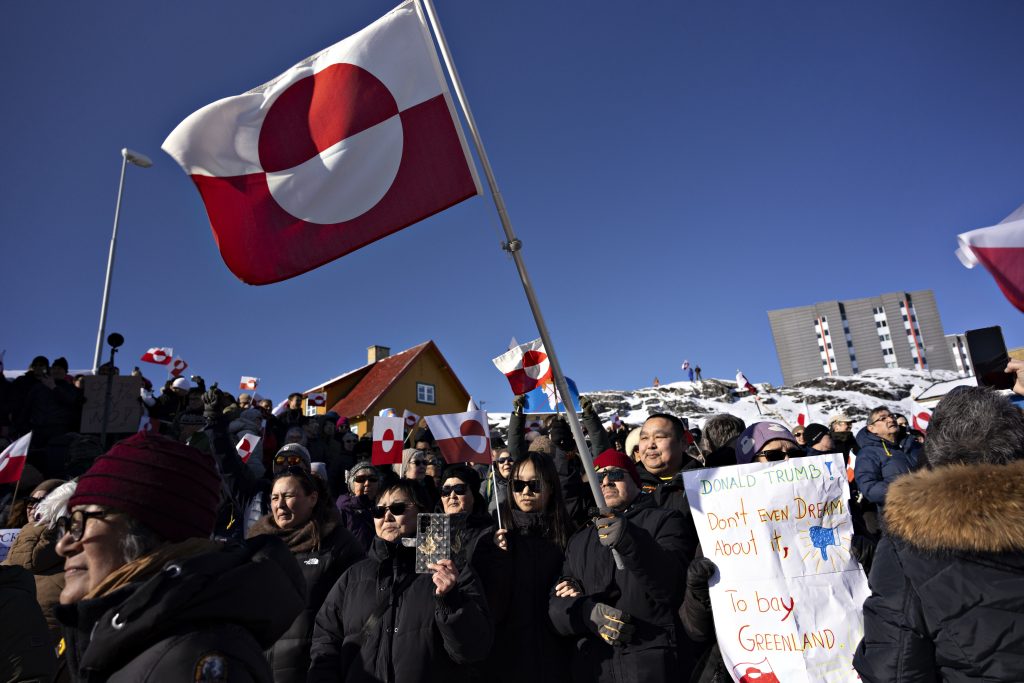Trump’s Greenland rhetoric, VP Vance visit, could backfire on U.S.: expert

U.S. President Donald Trump’s ongoing rhetoric around owning Greenland, coupled with U.S. Vice President JD Vance’s upcoming trip to the island, could backfire, an Arctic expert is warning. While the U.S. is right to acknowledge Greenland’s strategic importance, the administration’s handling of the matter is “inexplicable,” the expert says.
“U.S. interests and concerns in Greenland are completely legitimate, which is why I find it inexplicable that Trump has chosen the most unreasonable [way] to pursue what are otherwise reasonable aims, and indeed the highest-risk way of mitigating emerging risks,” Dwayne Ryan Menezes, the founder and managing director of the Polar Research and Policy Initiative, told Eye on the Arctic in an email exchange.
The U.S. had initially announced that Usha Vance, the wife of Vice President JD Vance, was set to spend several days in Greenland. However, the trip, coming amidst Trump’s ongoing rhetoric, prompted sharp rebukes from Greenlandic leaders and Copenhagen this week.
In an apparent about-face on Tuesday, Vance said in a video on X that he would accompany Usha on the trip and that they would now only visit the Pituffik Space Base, the U.S. base in Greenland’s Far North.
Vice President JD Vance announces Friday trip to Greenland:
Looking forward to visiting Greenland on Friday!🇺🇸 pic.twitter.com/p3HslD3hhP
— JD Vance (@JDVance) March 25, 2025
Approach harming international public opinion
However, Menezes remains skeptical of the timing and overall approach.
He pointed out that the U.S. already had a strong military presence in Greenland and excellent relations with Nuuk and Copenhagen, making Washington’s offensive territorial claim unnecessary and difficult to understand.
Adding fuel to the fire is Greenland’s current political situation. An election was held on March 11, and the island is still in the process of forming a new government. Local elections are set for early April.

Menezes says a high-profile U.S. visit, especially one that hasn’t been coordinated with Greenlandic or Danish officials, risks crossing a line and could be perceived as foreign interference.
“Not only is he turning public opinion in Greenland and beyond against the U.S., but he is also undermining the very alliances that give the U.S. its prestige,” Menezes said.
Rheteric for domestic consumption; but with international consequences
Menezes praised Trump’s recognition of Greenland’s geopolitical significance as astute, but he believes the current strategy undermines Washington’s long-term aims.
“Trump is clearly a man smart enough to appreciate the geopolitical significance of Greenland in a way few have, and the interests and concerns he identifies are largely understandable and legitimate,” he said.
“But exploiting any legitimate grievances that Greenland may have with Denmark to make the case for it joining the U.S.—in essence, replacing one colonial power with another—is a nefarious deployment of the language of decolonization to justify ambitions of colonial expansion.”
Menezes urges a shift in strategy to preserve U.S. global standing.
“Misrepresenting the aspirations of Greenlanders to mislead the domestic U.S. electorate into thinking that many Greenlanders want to be part of the U.S. is more akin to the methods adversaries deploy to spread disinformation. It is disrespectful to both Greenlanders and Americans,” he said.
“This is why I have sought to appeal to his better judgment, encouraging course correction before it is too late—not just with respect to Greenland, but also Canada.”
Comments, tips or story ideas? Contact Eilís at eilis.quinn(at)cbc.ca
Related stories from around the North:
Canada: Experts Arctic early-warning radar project news, want detail on other North promises, CBC News
Finland: Finnish Defence Minister tells party leaders shrinking fighter fleet would be “irresponsible”, Yle News
Greenland: US VP JD Vance itinerary change brings cautious relief for Greenland and Denmark, The Canadian Press
Iceland: Iceland’s FM announces defence review, calls revamped security policy ‘urgent’, Eye on the Arctic
Russia: Russia sees scope for international investors in Arctic, The Independent Barents Observer
Sweden: U.S. shows strength on the one-year anniversary of Sweden’s accession to NATO, The Independent Barents Observer
United States: U.S. experts call for ‘vigilance’ on Russian military buildup in Arctic, Alaska Public Media


